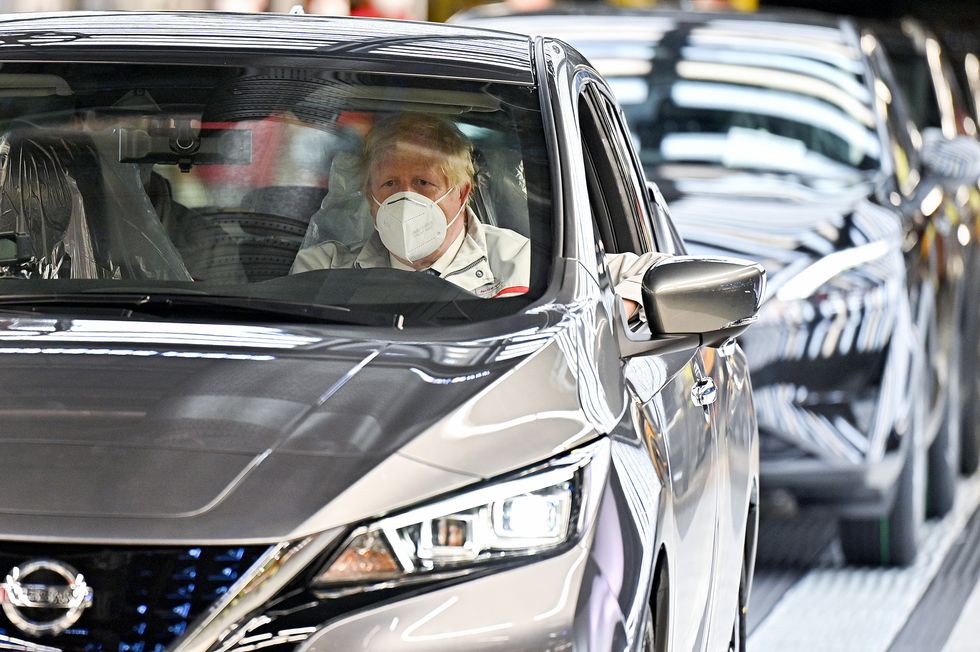The OBR has slashed its electric car growth forecasts
GETTY
Electric vehicles accounted for 16.5 per cent of new car sales in 2022/23
Don't Miss
Most Read
Trending on GB News
The Office for Budget Responsibility (OBR) has lowered its forecast for electric car sales following the Autumn Statement as major manufacturers plan to invest heavily in EVs.
The OBR announced that it was reducing its forecast for electric vehicles’ share of new car sales in 2027 to just 38 per cent, a huge drop compared to the 67 per cent it projected in March.
It stated that the growth of electric car sales had slowed with drivers avoiding new EVs, as many delay buying a new car because of cost pressures.
WATCH NOW: Danny Kelly reacts to electric vehicle sales
The OBR suggested that this could be a reason for people delaying their decision to buy a new car, as well as expensive upfront costs.
Electric vehicles accounted for 16.5 per cent of new car sales in 2022/23, although this was more than one percentage point below the OBR’s March 2023 forecast of 17.7 per cent.
The watchdog said the ticket price of new electric cars, which tend to start above £30,000, would “likely still be disincentivising many consumers”.
This is particularly related to purchases using car finance given that interest rates were significantly higher than anticipated last year.
There is still some optimism about the sale of electric cars with the rollout of the Zero Emission Vehicle mandate in January which will require a minimum amount of new car sales to be zero emission by each manufacturer.
Ian Plummer, commercial director at Auto Trader, said: “The OBR’s warnings that electric vehicle adoption is slowing simply underlines the urgency of making them more affordable.
“With the ban on new petrol and diesel sales delayed, drivers need more incentives to make the switch – they need more affordable cars, and confidence in charging points and running costs.
“The Chancellor has started the job today by cutting red tape and planning restrictions on electric charging points and boosting business investment, which should bring down costs.”
He suggested that this could be done by slashing the VAT rate on public charging points, which is at 20 per cent, down to the level of domestic VAT at five per cent.
Nissan is expected to make a major announcement tomorrow where it will unveil plans to build new electric Qashqai and Juke models at its Sunderland plant.
Reports have suggested that Prime Minister Rishi Sunak and Chancellor Jeremy Hunt have been involved in the discussions with Nissan.
According to Sky News, the investment decision would involve a “significant Government funding guarantee”, with questions remaining about whether it will be funded by the taxpayer.
Nissan first opened its Sunderland manufacturing base in 1986 and has become a hub for electric vehicle production in recent years.
In 2021, the Japanese manufacturer invested £1billion into the Sunderland plant, creating thousands of jobs in the process.
LATEST DEVELOPMENTS:

Boris Johnson visiting the Nissan Sunderland plant after the £1billion investment in 2021
PA
This includes the creation of a large gigafactory where Nissan will keep a 20 per cent stake, with the factory being built by Chinese company Envision.








